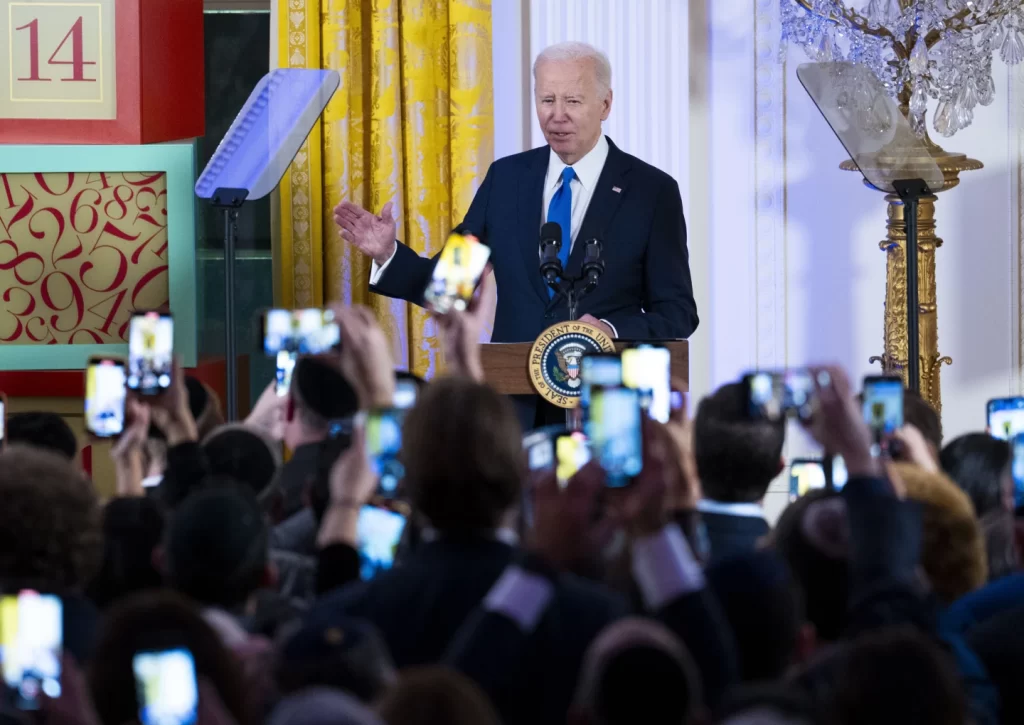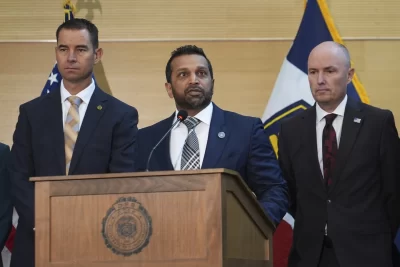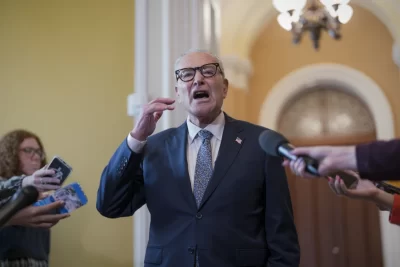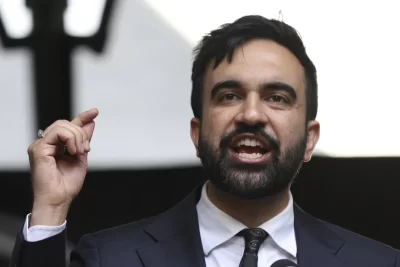
WASHINGTON — President Joe Biden’s campaign and Democratic candidates are in a fevered race with Republicans over who can best exploit the potential of artificial intelligence, a technology that could transform American elections — and perhaps threaten democracy itself.
Still smarting from being outmaneuvered on social media by Donald Trump and his allies in 2016, Democratic strategists said they are nevertheless treading carefully in embracing tools that trouble experts in disinformation. So far, Democrats said they are primarily using AI to help them find and motivate voters and better identify and overcome deceptive content.
″Candidates and strategists are still trying to figure out how to use AI in their work. People know it can save them time — the most valuable resource a campaign has,” said Betsy Hoover, director of digital organizing for President Barack Obama’s 2012 campaign and co-founder of the progressive venture capital firm Higher Ground Labs. “But they see the risk of misinformation and have been intentional about where and how they use it in their work.”
A Nervous about falling behind the GOP, Democrats are wrestling with how to use AI
Campaigns in both parties for years have used AI — powerful computer systems, software or processes that emulate aspects of human work and cognition — to collect and analyze data.
The recent developments in supercharged generative AI, however, have provided candidates and consultants with the ability to generate text and images, clone human voices and create video at unprecedented volume and speed.
That has led disinformation experts to issue increasingly dire warnings about the risks posed by AI’s ability to spread falsehoods that could suppress or mislead voters, or incite violence, whether in the form of robocalls, social media posts or fake images and video.
Those concerns gained urgency after high-profile incidents that included the spread of AI-generated images of Trump, the former president, getting arrested in New York and an AI-created robocall that mimicked Biden’s voice telling New Hampshire voters not to cast a ballot.The Biden administration has sought to shape AI regulation through executive action, but Democrats overwhelmingly agree Congress needs to pass legislation to install safeguards around the technology.
Top tech companies have taken some steps to quell unease in Washington by announcing a commitment to regulate themselves. Major AI players, for example, entered into a pact to combat the use of AI-generated deepfakes, or deliberately manipulated images, around the world. But some experts said the voluntary effort is largely symbolic and congressional action is needed to prevent AI abuses.
Meanwhile, campaigns and their consultants have generally avoided talking about how they intend to use AI to avoid scrutiny and giving away trade secrets.
The Democratic Party has “gotten much better at just shutting up and doing the work and talking about it later,” said Jim Messina, a veteran Democratic strategist who managed Obama’s winning reelection campaign.
The Trump campaign said in a statement that it “uses a set of proprietary algorithmic tools, like many other campaigns across the country, to help deliver emails more efficiently and prevent sign up lists from being populated by false information.” Spokesman Steven Cheung also said the campaign did not “engage or utilize” any tools supplied by an AI company, and declined to comment further.
The Republican National Committee, which declined to comment, has experimented with generative AI. In the hours after Biden announced his reelection bid last year, the RNC released an ad using artificial intelligence-generated images to depict GOP dystopian fears of a second Biden term: China invading Taiwan, boarded up storefronts, troops lining U.S. city streets and migrants crossing the U.S. border.
A key Republican champion of AI is Brad Parscale, the digital consultant who in 2016 teamed up with scandal-plagued Cambridge Analytica, a British data-mining firm, to hyper target social media users. Most strategists agree that the Trump campaign and other Republicans made better use of social media than Democrats during that cycle.







